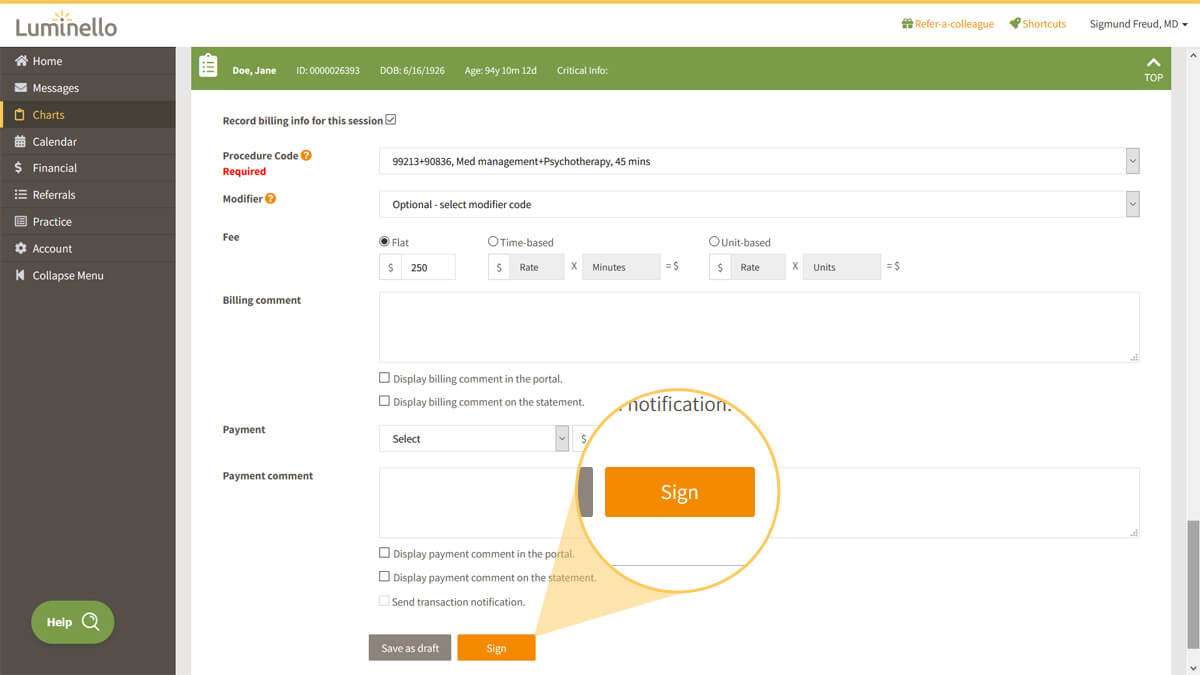When to Get Professional Help for Stress
It’s important to understand what your baseline level of stress is and also how well you cope with stress. Sometimes, getting feedback from others who know you well might also provide insight, as it can be hard to see ourselves objectively.
When you start to feel tense muscles, physical pain, headaches or changes in your libido, these are some of the common physical symptoms of stress. Changes in behaviors such as eating habits, alcohol use and mood swings can also be red flags that you’re undergoing a lot of stress. Sleep issues, hyperarousal, anxiety and depression are also indicators of high stress.
If any of these stress-related issues becomes so extreme that they are interfering with your normal activities of daily living, such as going to work, seeing family or friends or attending routine social gatherings, it’s a sign you may need to seek out professional help. While experiencing stress in moderation isn’t harmful, stress that is intense, chronic, or debilitating can have lasting negative effects on both your physical and mental health.
How Can Therapy Help With Stress?
Therapy can help people with high stress develop more awareness about the causes and triggers for stress in their lives, which can sometimes help to identify solutions or lifestyle changes that can help reduce stress. In addition, therapy can help people learn effective and healthy methods of coping with stress, including specific relaxation skills to reduce stress and enjoyable activities that can help counteract it.
Common Types of Therapy Used for Stress Management
Cognitive Behavioral Therapy (CBT) is one of the most common types of therapy used for stress management. In CBT, the therapist helps you identify negative thought patterns which negatively impact your behaviors and emotions. By getting to the root of the thought, CBT empowers you to reshape your experience. CBT, when used consistently for two months, can help relieve feelings of stress and anxiety related to chronic illnesses.3
Additionally, CBT has shown to be effective for caregivers of those dealing with chronic illness as well, as evident in a 2018 study. In this study, caregivers were found to benefit from group stress therapy that lasted at least two months as the group setting was able to help all individuals in the group adhere to consistently attending group stress therapy.2 Another study on nursing students found similar benefits after 10 weeks of consistent CBT, with these students reporting feeling more competent, less stressed, and having higher self-esteem.5
Mindfulness skills and formal meditation also have powerful stress-relieving capabilities, and these skills are often integrated into therapy.4 Mindfulness and meditation help people learn to pull their attention away from unhelpful thoughts and to be more present. Certain types of therapy like Acceptance and Commitment Therapy (ACT), Mindfulness-based CBT, and Dialectical Behavioral Therapy utilize mindfulness as a method of regulating emotions.
For those who can identify a specific situational cause for their stress, solution-focused techniques can also be helpful. Solution focused therapy is often provided in 6-8 sessions (or fewer) and focuses on helping people find solutions for specific problems and stressors they are experiencing. Those with stress related to a more chronic problem (like anxiety, depression, grief, or trauma) may benefit from longer-term therapy, but solution focused therapy can be helpful to those experiencing situational stress or difficulties adapting to a specific life change.
3 Examples of Therapy for Stress
Since stress can manifest differently, and different therapy types are useful for different situations, here are three examples of different techniques used for specific situations:
1. CBT for Work-Related Stress
A client who is getting CBT therapy for work-related stress would be introduced to the core concepts of CBT, which describe the relationship between thoughts, feelings, and behaviors. They would be asked to “self-monitor” these outside of sessions, possibly even using a tracking log or worksheet, using this exercise to help the client become more aware of the specific thoughts that feed into stress and cause negative reactions. The client may be taught specific skills to interrupt unhelpful thoughts like these when they arise in the future, replacing them with new, more helpful thoughts.
2. Brief Solution-Focused Therapy After College Graduation
A client who just graduated from college and is starting a new career might seek counseling for stress related to major life transitions. Their therapist might help them identify the specific problems and sources of stress in their lives right now, and help them find practical, helpful solutions to address these. The therapist might also help the client learn new, healthier methods of coping with stress. Generally, this type of therapy is short-term, ending in 6-8 sessions or less.
3. ACT for Non-Specific Stress & Anxiety
Sometimes clients do not know what is causing them stress and anxiety. If they are unable to identify a specific cause, the therapist is often still able to provide help by teaching them different ways of coping and responding to emotions. An ACT therapist would likely endorse emotional acceptance and mindfulness skills, encouraging the client to be open to experiencing anxiety and stress rather than avoiding them or trying to control them. By “dropping the struggle” with emotions, the client often notices that these difficult emotions become less intense and don’t last as long.
Is Therapy Effective for Treating Stress?
Stress counseling can be very effective in helping people reduce their stress, identify and address underlying issues, and learn better methods of coping. Given that stress can sometimes mask itself as high-functioning anxiety or depression, having a professional opinion is important in ruling out a more chronic cause.
Therapy provides a confidential space for people to express themselves, seek support, and identify changes they need to make to reduce stress. Stress therapy also helps people learn additional ways to manage stress on their own to supplement talk therapy.
- Stress is a normal part of life—but it can become harmful if it grows in excess, as a result of our failing to address and manage it properly.
- Fortunately, if you are struggling with stress management, a therapist can help you: first, they’ll assist you in identifying the major stressors in your life.
- Additionally, therapy will serve as that safe place for releasing all of your emotions: your therapist will help you to understand and address these difficult feelings.
- Finally, a therapist can help you to determine effective coping mechanisms as well as self-care activities that will help you better manage stress.
- These mechanisms and activities can be simple, as they often involve things like exercising, listening to music, and deep breathing.
The car isn’t starting. Work is hectic. Your husband is in a bad mood. And the kids won’t listen. You try to take a deep breath in, as every “bad” thing pushes to the forefront of your mind. But you fail to regain control—and you’re left wondering what to do, where to turn.
Before we go any further, let’s make one thing clear: stress is a normal part of all of our lives. It’s when we fail to process and manage this stress that it becomes harmful. Licensed Clinical Social Worker Alexis Elliott explains: “It is important to note that stress is a part of life. There is good stress and bad stress, but it is all around us. Stress itself can be harnessed as a useful tool for motivation, it’s not all bad. But it’s when we have an abundance of unchecked stressors in our lives and ineffective coping mechanisms to deal with it that it becomes a problem.” That’s when therapy or counseling can make a big difference. If you’re struggling with stress management, a mental health professional can help you identify your primary stressors, confront your feelings, and discover effective means for coping with stress:
1. Bring awareness to the major stressors in your life.
If you’re considering working with a counselor or therapist for stress management, you can expect them to help you identify the major stressors in your life. “Therapy can bring about awareness of what is actually causing an individual stress,” Stevon Lewis, Licensed Marriage and Family Therapist, explains. “Oftentimes, we aren’t aware of what is creating feelings of stress and making us feel overwhelmed. Talk therapy can assist with identifying stressors and singling out which is causing you the most distress.” He gives an example: “Sometimes we are stressed because we can’t or won’t say “no”. As a result, we take on too much and neglect ourselves. Therapy can help a person work through why they feel the need to say “yes” to everything and implement more appropriate boundaries that allow for them to place some priority over their own needs.”
2. Provide a healthy outlet for releasing your emotions.
Also, therapy serves as that safe place for releasing all of your emotions, even the ones you’ve kept tucked away. “Therapy techniques give people an opportunity to deal with and offload the emotions in this proverbial bag, which ultimately decreases the stress response in the body,” says Tiffany Toombs, Mental Wellness Expert. “By facing and addressing one’s issues and finding a resolution or peace with their problems, they subsequently lower their stress levels, allow the sympathetic nervous system to relax and turn off, which decreases the concentration of the stress hormones adrenaline, noradrenaline, and cortisol in the body. By switching off the sympathetic nervous system and lowering our stress levels, we have a greater capacity to face and address future stresses with ease as they come.”
3. Help you find effective coping mechanisms and self-care activities.
Finally, counselors and therapists can help you identify coping mechanisms and self-care activities that work well for you. “It is important to help clients identify coping mechanisms to implement into their everyday life that are doable for them in order to manage their stress in a healthy and effective way,” Psychotherapist Ariel Sank explains. “Self-care is an extremely important part of stress management and finding ways for clients to implement self-care into their routine will be very helpful in managing overall stress while coping mechanisms can be helpful to combat stress in the moment. Examples of this may be exercise, deep breathing techniques, listening to music, or finding activities that you enjoy and making them a priority in their daily life.”




